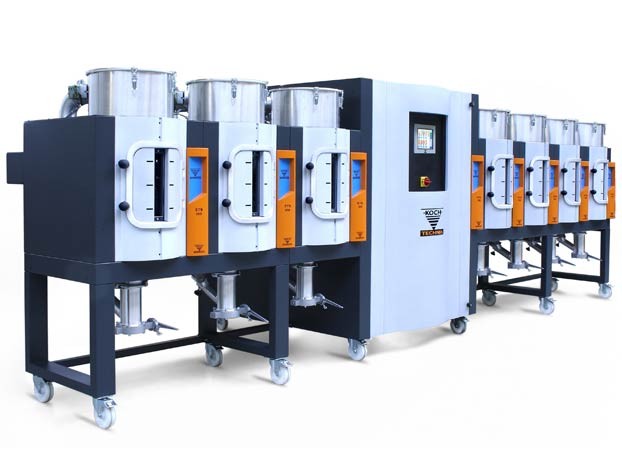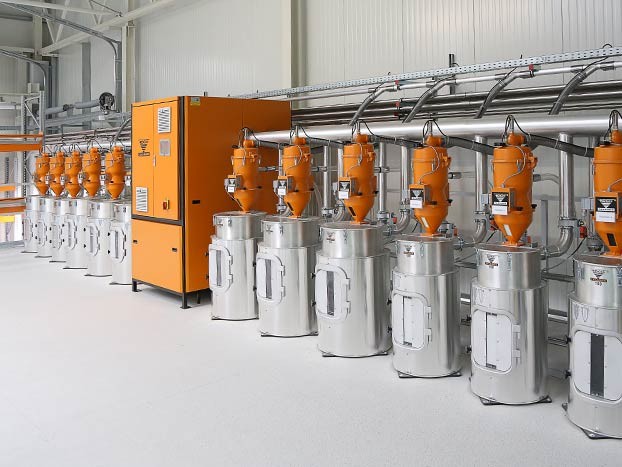
KOCH dew point control
Dew point controlled plastic pellet drying saves up to 40% energy
For dry air drying without dew point control, the desiccant containers alternate in fixed cycles during dehumidification and regeneration. The flow rates and the moisture content of the material to be dried are not taken into account.
On the other hand, KOCH dry air dryers with dew point control work depending on the dew point and therefore are considerably more energy-saving. As soon as a desiccant reaches the dew point limit of -30 °C, it is switched to a fresh, regenerated desiccant container. It means that the drying process adapts to the material: when the pellets are very moist, the switching cycles are shorter and when the moisture content is low, they are correspondingly longer.
The advantage of the dew point-controlled drying is obvious: High energy savings and the always consistent quality of the final product.

Patented KOCH ECO control system
Our patented control system for material-friendly and energy saving pellet drying
Our ECO control system guarantees that hygroscopic materials such as PA, PC, LCP, POM, etc. are not overdried:
During the dry air-drying process, the material in the storage containers is dried to the “residual moisture required for the processing”. If no or little material is taken from a container, further drying may lead to overdrying and damaging the material.
The KOCH ECO control system prevents that!
If the temperatures in the upper area of the container reach a defined value, the ECO control system automatically removes such a container from the drying cycle. Once the pellets are removed or the dwell time is exceeded, the container is joined again.
Characteristics:
- Your material is not overdried.
- You always have pre-dried pellets available.
- You save energy – in a significant extent.
Other advantageous properties:
- Control of the required air quantity for each individual drying container
- Control of the defined air quantity – independently of the filling quantity and shape of material
- The exactly required amount of dry air flows always through the container.
- Optionally with automatic load adjustment